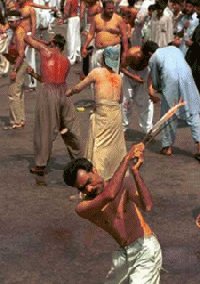FORGIVE ME, READER, FOR I HAVE SINNED

There's an astonishing piece of self-flagellation in the New York Times, which will be picked over for days to come.
The New York Times take a long hard look at itself over its coverage of the Iraq War -- and believes it came up short.
The mistakes identified by the paper raise fundamental questions -- particularly about the often too-cosy relationship between journalists (particularly in the US) and the governing administration.
The Times admits that:
* In a number of instances its coverage was not as rigorous as it should have been.
* In some cases, the information being passed to Times reporters was insufficiently qualified or allowed to stand unchallenged.
* Editors at several levels who should have been challenging reporters and pressing for more scepticism were perhaps too intent on rushing scoops into the paper.
* The Times fell for misinformation from unreliable Iraqi exiles and defectors bent on regime change.
* On the issue of Iraqi WMDs, "it looks as if we, along with the administration, were taken in."
All credit to the NYT for throwing its hands up and admitting its shortcomings but it raises the question -- WHY? How did this happen?
Why did one of America's most prestigious publications not check its information as rigorously as it should? Why didn't editors challenge their reporters? Why did the Times fall for unreliable information? Why was it "taken in"?
It's going to be fascinating to watch this story being dissected and chewed over.
Meanwhile, CNN's Chris Cramer attacks some sections of the media for failing to take the issue of safety in hostile environments seriously enough.

There's an astonishing piece of self-flagellation in the New York Times, which will be picked over for days to come.
The New York Times take a long hard look at itself over its coverage of the Iraq War -- and believes it came up short.
The mistakes identified by the paper raise fundamental questions -- particularly about the often too-cosy relationship between journalists (particularly in the US) and the governing administration.
The Times admits that:
* In a number of instances its coverage was not as rigorous as it should have been.
* In some cases, the information being passed to Times reporters was insufficiently qualified or allowed to stand unchallenged.
* Editors at several levels who should have been challenging reporters and pressing for more scepticism were perhaps too intent on rushing scoops into the paper.
* The Times fell for misinformation from unreliable Iraqi exiles and defectors bent on regime change.
* On the issue of Iraqi WMDs, "it looks as if we, along with the administration, were taken in."
All credit to the NYT for throwing its hands up and admitting its shortcomings but it raises the question -- WHY? How did this happen?
Why did one of America's most prestigious publications not check its information as rigorously as it should? Why didn't editors challenge their reporters? Why did the Times fall for unreliable information? Why was it "taken in"?
It's going to be fascinating to watch this story being dissected and chewed over.
Meanwhile, CNN's Chris Cramer attacks some sections of the media for failing to take the issue of safety in hostile environments seriously enough.

0 Comments:
Post a Comment
<< Home